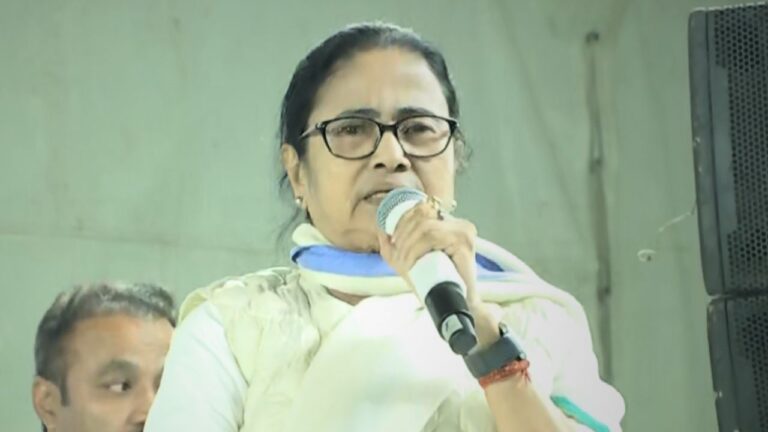News Desk, Kolkata : In a moment that blended political dynamism with cultural harmony, Prime Minister Narendra Modi inaugurated the Ram Temple in Ayodhya, while on the other side of the spectrum, Mamata Banerjee, Chief Minister of Kolkata, propagated a message of religious unity through her ‘Sanghati Yatra’ on the city’s thoroughfares.However, the conclusion of the march saw Mamata, a key leader of the Indian Opposition coalition, facing some criticism.
Over the course of the last 34 years, Mamata Banerjee has evolved from being a staunch leftist to a powerful figure in Trinamool Congress, assuming roles of both opposition leader and chief minister. Even amid the changing political landscape, Mamata has remained an influential dissenting voice, often taking to the streets and rallying for her cause. Yet, the recent turn of events sees Trinamool Congress, once a proponent of opposition unity, taking control of the India United Front’s meeting, prompting Mamata to express her reservations. She asserted, “We’ve given the name ‘India,’ but it saddens us when we attend meetings and find Trinamool Congress controlling them.”
The Bengali political arena, shaped by 34 years of leftist influence, has witnessed Mamata Banerjee’s ascent to power in Trinamool Congress. Her role as an opposition leader during the left regime and her subsequent transition to the Chief Minister’s office are noteworthy. However, Trinamool Congress, despite claiming supremacy, now finds itself managing the India United Front’s meetings, further emphasizing Mamata’s influence.
From the stage, Mamata Banerjee stated, “We won’t listen to the advice of those with whom we have fought for 34 years. We have been greatly disrespected, but we declared that the powerful regional parties should take charge where they are strong.” She subtly addressed Congress, saying, “Fight on your own in the 300 seats you contest, we will help. We won’t compete against you for any seat.”
Trinamool Congress supremo added, “They say they will do whatever they want. Remember, helping BJP won’t be beneficial. If anyone helps BJP, we won’t forgive them. I won’t forgive. We have the courage to fight, but we are not allowed to fight.”
In an attempt to convey courage amidst the political turmoil, Mamata Banerjee, during the ‘Sanghati Yatra,’ addressed the crowd, “We have the courage. Today, we organized a massive gathering. We showed courage. So many political parties are there. Who has shown courage? We visited temples, mosques, churches, gurdwaras… We want Hindus, Muslims, Sikhs, Christians—all to live together as brothers.”
The narrative paints a vivid picture of Mamata Banerjee’s journey from a firebrand leftist to a seasoned political leader steering Trinamool Congress. The recent power dynamics within the India United Front and Mamata’s bold stance against potential alliances with BJP showcase the evolving landscape of Indian politics. As the countdown to the upcoming elections begins, Mamata’s ability to maintain her party’s identity and assert regional strength becomes crucial, setting the stage for a political spectacle that will shape the future of West Bengal and beyond.
DISCLAIMER
Our news media denounces any form of bias and disapproves of sensationalism. The disseminated news is entirely educational and aimed at social awareness. Our media maintains absolute impartiality, adhering solely to the purpose of education and social consciousness.


